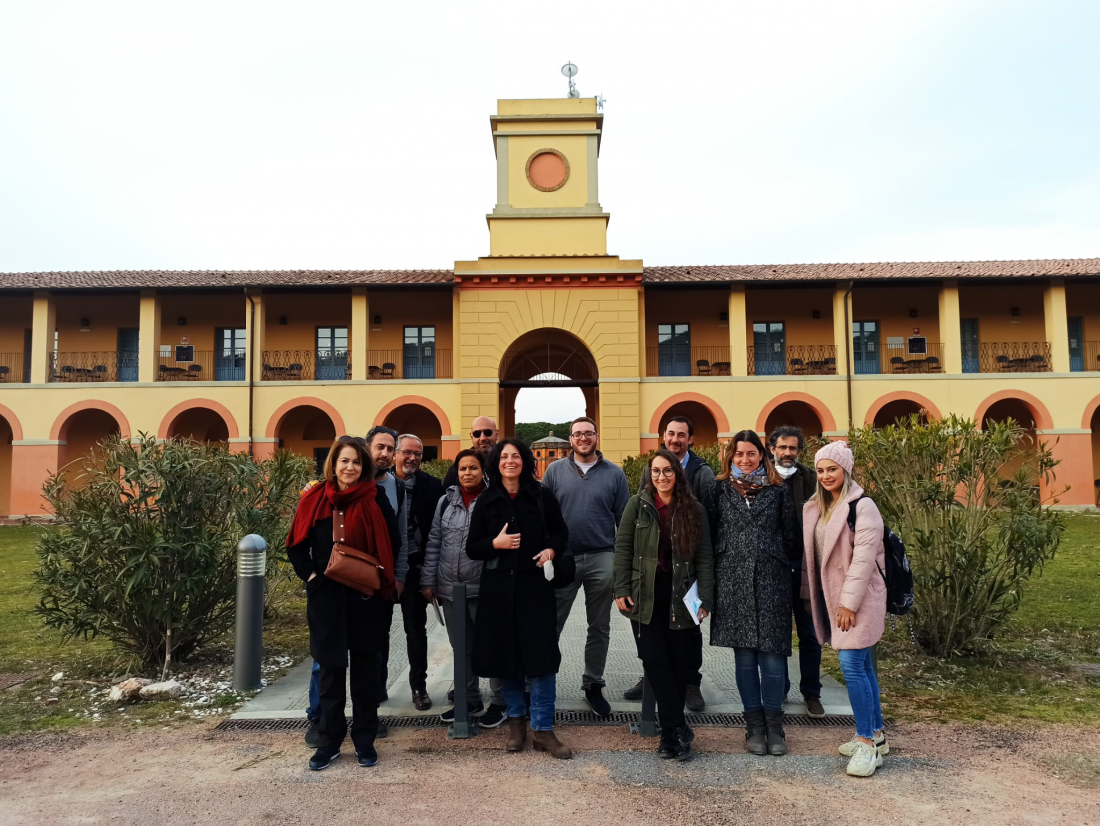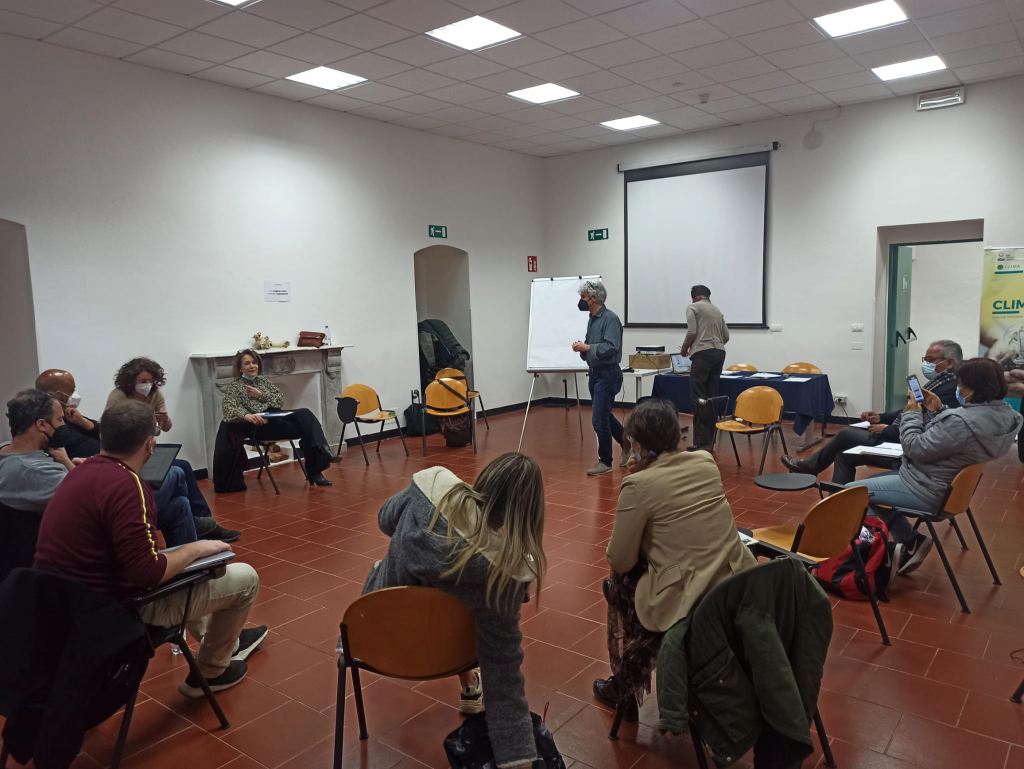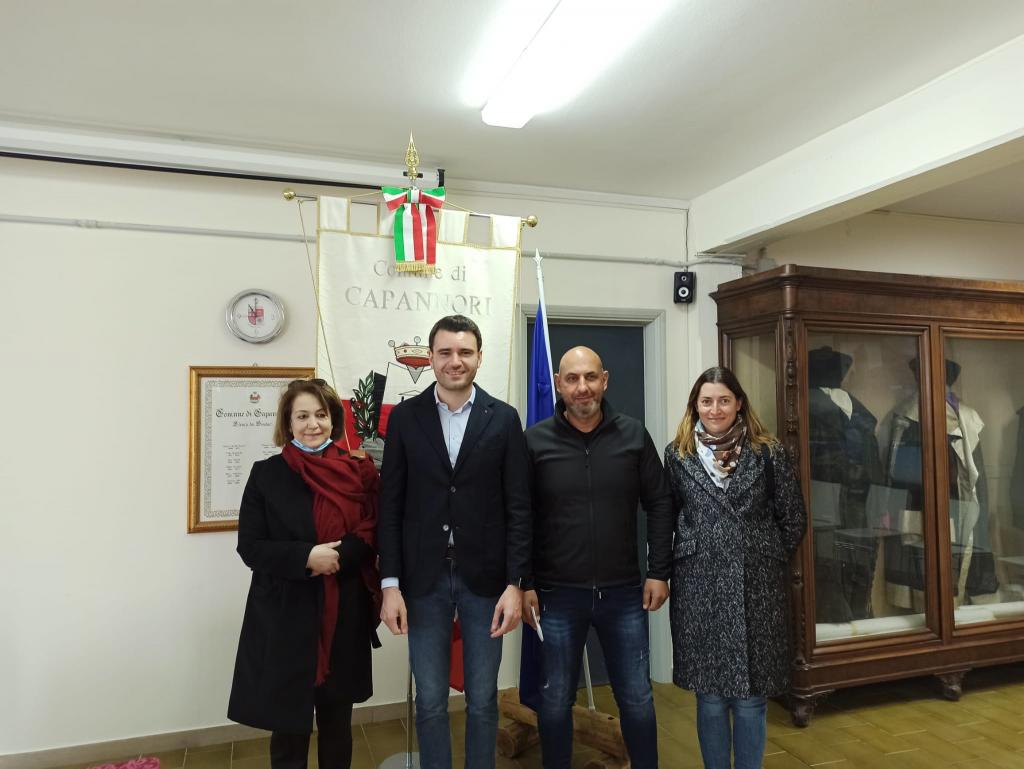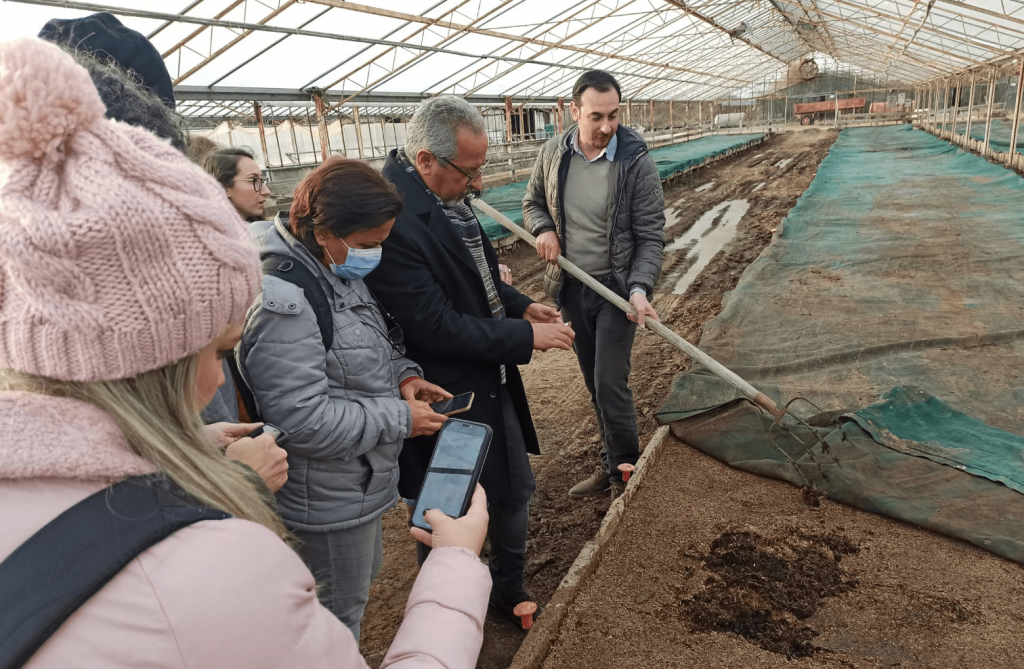CLIMA staff discovers new Italian excellences, from worm composting to Zero Waste

Sestri Levante Municipality opens its doors once again to CLIMA partners for a new meeting. On 10th and 11th March, project partners came together from all of the countries involved in the project for an intense two-days adventure between environmental communication, environmental education on waste collection systems and a all-day-long visit to Tuscany excellences related to Zero Waste network.
The first day took place in the former cloister located in Baia del Silenzio, the Annunziata cloister where Kick-off meeting too was hosted in January 2020. The main issue to be discussed was environmental education, especially related to the citizens' implication in waste management, mostly at a local or regional level. The course was led by two experts from the Italian environmental communication consultant society E.R.I.C.A., that engaged CLIMA partners in a relevant discussion session on how to develop a successful communication plan to catch citizens' and stakeholders' attention on environmental issues, especially on selected collection and door-to-door waste management system.

Mainly, experts tried to focus on the communication planning features, highlighting the social impact on the three countries inhabitants, launching an interesting discussion on the differences extisting between Italy, Lebanon and Tunisia through the real experiences told by the meeting attendees. In order to help partners comprehension, they also divided the small group in two to propose a team work activity concerning the keys to success in waste management after showing some Italians virtuous examples.
On the other hand, on Friday 11th March, the whole team left Sestri Levante early in the morning towards Tuscany, the ideal setting for a short mission related to the waste management. The day schedule was tiring though full of interesting activities. The first stop was the Zero Waste Research Center in Capannori, the first to be founded in 2010 from an idea of Rossano Ercolini, the president of Zero Waste Europe and Zero Waste Italy network. CLIMA partners had the chance to meet the Center director, who in 2013 was awarded the Goldman Environmental Prize for his fierce battle against waste incineration.
After the Research Center, the small team visited the recycling depot in Capannori, led by the ad of the local waste collection operator, Alessio Ciacci, who is too a Zero Waste strategy expert. He took the occasion to explain Capannori development through the years from the door-to-door system to the pay-as-you-throw one, which led to a 85% level of separate waste collection. A success that became reality not only thanks to the citizens' engagement but also to the Municipality commitment to the environmental cause: to better explain the environmental policy evolution, CLIMA staff also met the Environmental council member Giordano Del Chiaro, who greeted the team in the Municipality room dedicated to council meetings.

The last stop was near Pisa, where the CLIMA staff visited the Nature Park San Rossore, a protected natural area managed at a regional level where both wild and domestic animals can roam freely through gardens and lawns, next to people having a picnic or riding a horse. Here, they met Marco Calcaprina, one of the most renowned worm composting experts in Italy who manages his own worm composting site in San Giuliano Terme. Mr. Calcaprina explained the benefits of using animals to produce compost, an innovative method that inables farms and enterprises to successfully cooperate to implement the circular economy system. Mr. Calcaprina also offered the group a guided visit to his CLT, the Tuscanian Worm Composting Center that is the main core of his activity. Here, he sells the humus produced by the worms he takes care and the worms themselves to promote worm composting spreading. On the other hand, him and his partners offer experts' consultations to the farmers and the societies interested in introducing worm composting technique in their productive processes.

Between environmental communication and innovation to be applied to agriculture, CLIMA partners were able to spend a couple of funny while interesting days: a new step for international cooperation implementation based on a common basis discussion.









